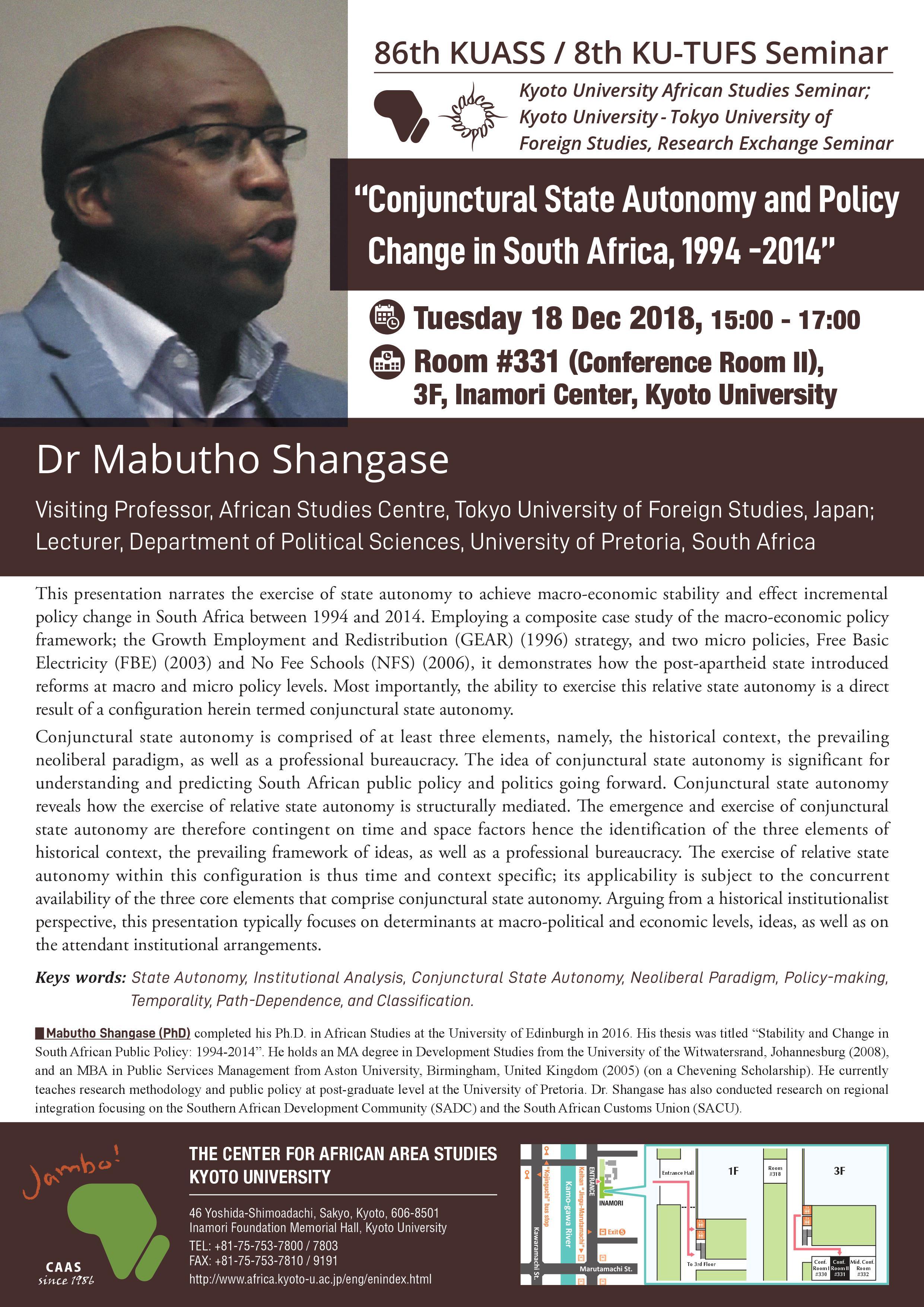現代アフリカ地域研究センターで招へいしているプレトリア大学のマブート・シャンガセ博士が、京都大学で行なわれるセミナーで講演します。これは、京都大学アフリカ地域研究資料センターと東京外国語大学現代アフリカ地域が共同主催するKU-TUFSセミナーの第8回となります。
◆講演者:マブート・シャンガセ博士
(プレトリア大学/講師、東京外国語大学/客員教授)
◆日時:2018年12月18日(火) 15:00~17:00
◆場所:京都大学稲盛財団記念館3階小会議室2(331号室)
◆使用言語:英語
◆参加費:無料
◆事前申し込み:不要(どなたでも参加できます)
◆共同主催:京都大学アフリカ地域研究資料センター、東京外国語大学現代アフリカ地域研究センター
◆演題:Conjunctural State Autonomy and Policy Change in South Africa, 1994 -2014
◆要旨:
This presentation narrates the exercise of state autonomy to achieve macro-economic stability and effect incremental policy change in South Africa between 1994 and 2014. Employing a composite case study of the macro-economic policy framework; the Growth Employment and Redistribution (GEAR) (1996) strategy, and two micro policies, Free Basic Electricity (FBE) (2003) and No Fee Schools (NFS) (2006), it demonstrates how the post-apartheid state introduced reforms at macro and micro policy levels. Most importantly, the ability to exercise this relative state autonomy is a direct result of a configuration herein termed conjunctural state autonomy.
Conjunctural state autonomy is comprised of at least three elements, namely, the historical context, the prevailing neoliberal paradigm, as well as a professional bureaucracy. The idea of conjunctural state autonomy is significant for understanding and predicting South African public policy and politics going forward. Conjunctural state autonomy reveals how the exercise of relative state autonomy is structurally mediated. The emergence and exercise of conjunctural state autonomy are therefore contingent on time and space factors hence the identification of the three elements of historical context, the prevailing framework of ideas, as well as a professional bureaucracy. The exercise of relative state autonomy within this configuration is thus time and context specific; its applicability is subject to the concurrent availability of the three core elements that comprise conjunctural state autonomy. Arguing from a historical institutionalist perspective, this presentation typically focuses on determinants at macro-political and economic levels, ideas, as well as on the attendant institutional arrangements.


